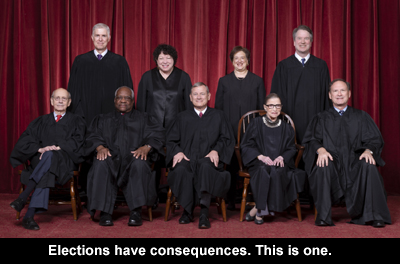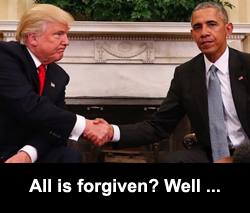A lot might be said of any administration’s first week in office, Because we’re coming off of a presidency like no other, and not in a good way, there’s going to be a tendency among members of the press to be more deferential than might otherwise seem appropriate. On a human level, that’s understandable – White House correspondents are happy to see the daily briefing return, and to see it managed with a lot less tone. After four years of being subjected to withering attacks from Trump and his crew, reporters are breathing a sigh of relief and, I’m sure, hoping that this signals a return to the normal routines of previous presidencies, when there existed a more generally congenial symbiotic relationship between the press and the press office. (There was symbiosis between Trump’s administration and the press, but it was of a more corrosive variety.) They want their cheap-glamor White House Correspondents Dinner back, roast and all.
I’m not sure they’re going to get their wish this time, not entirely. The media universe is much more fragmented now then it was even five years ago, and the broad flaccid consensus that the mainstream media so worships may prove elusive. This is a divided country, with what looks like a larger number of people on the side of our standard mediated democratic governance, and a large minority seemingly (and in many cases openly) advocating for autocracy. It’s really more than advocacy, though – large numbers of them have been moved to violence, murder, and active disruption of the constitutional order, such as we saw on January 6. Now the vast majority of the insurrectionists have melted back into their home communities, unmolested, perhaps celebrating their success at delaying the electoral vote certification beyond the statutory deadline. Millions of people believe ridiculous lies about fraudulent votes in the last election – it’s hard to move on from that fact.
As we approach an impeachment trial in the Senate, Trump’s second, Republican senators are taking issue with the process, attempting to stop the trial by arguing that because Trump left office, the issue is moot. When the facts aren’t on their side, Republicans always go for process. They’re doing everything they can to obstruct the majority. I have to say, it is not surprising but still shocking that, after that Trump-fueled hate mob busted into the capitol looking for Pence’s head and those of the Congressional leadership, these senators can still casually tut tut over the effort to hold the former president accountable. They were almost impaled on the end of a pitchfork just three weeks ago, and yet they still go to bat for the outside strategy … and for every rube to remain duped. Un-effing-believable.
I started critical coverage of the Biden administration on this past week’s episode of Strange Sound, with a focus on foreign policy. I encourage you to do the same, even if just for your own edification.
luv u,
jp



 Second, there’s some reason to believe that Trump’s success, in the absence of a traditional ground GOTV campaign, was based in large measure on free media in the form of speeches and appearances that ran on practically every news channel for hours a week over the last year. I have heard NBC reporters (sometimes referred to as “journalists”) connect this Trump phenomenon with the large number of Trump signs they saw in rural communities. That, of course, was just a symptom of the mental disease that afflicts non-rich Trump supporters. The vector by which the disease spread was their own “reporting” – namely, serving up hours of this man’s bullshit on multiple platforms to millions of hungry minds, hence the signs. But they are no more reliable an indication of the level of support than the number of people showing up at Trump rallies. Sure, he had large crowds. So did Bernie. So did Ralph Nader in 2000. When the day came, the numbers were pretty flaccid.
Second, there’s some reason to believe that Trump’s success, in the absence of a traditional ground GOTV campaign, was based in large measure on free media in the form of speeches and appearances that ran on practically every news channel for hours a week over the last year. I have heard NBC reporters (sometimes referred to as “journalists”) connect this Trump phenomenon with the large number of Trump signs they saw in rural communities. That, of course, was just a symptom of the mental disease that afflicts non-rich Trump supporters. The vector by which the disease spread was their own “reporting” – namely, serving up hours of this man’s bullshit on multiple platforms to millions of hungry minds, hence the signs. But they are no more reliable an indication of the level of support than the number of people showing up at Trump rallies. Sure, he had large crowds. So did Bernie. So did Ralph Nader in 2000. When the day came, the numbers were pretty flaccid.